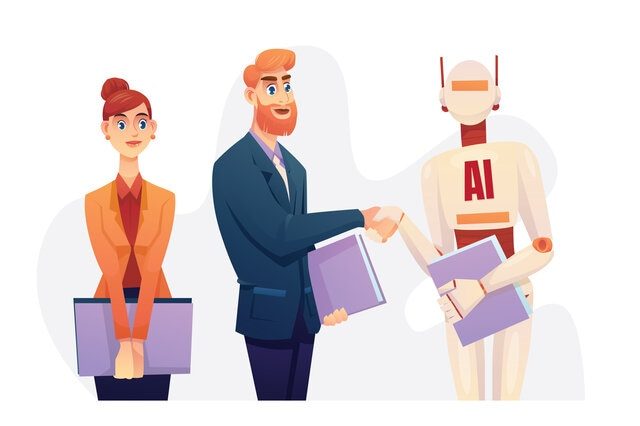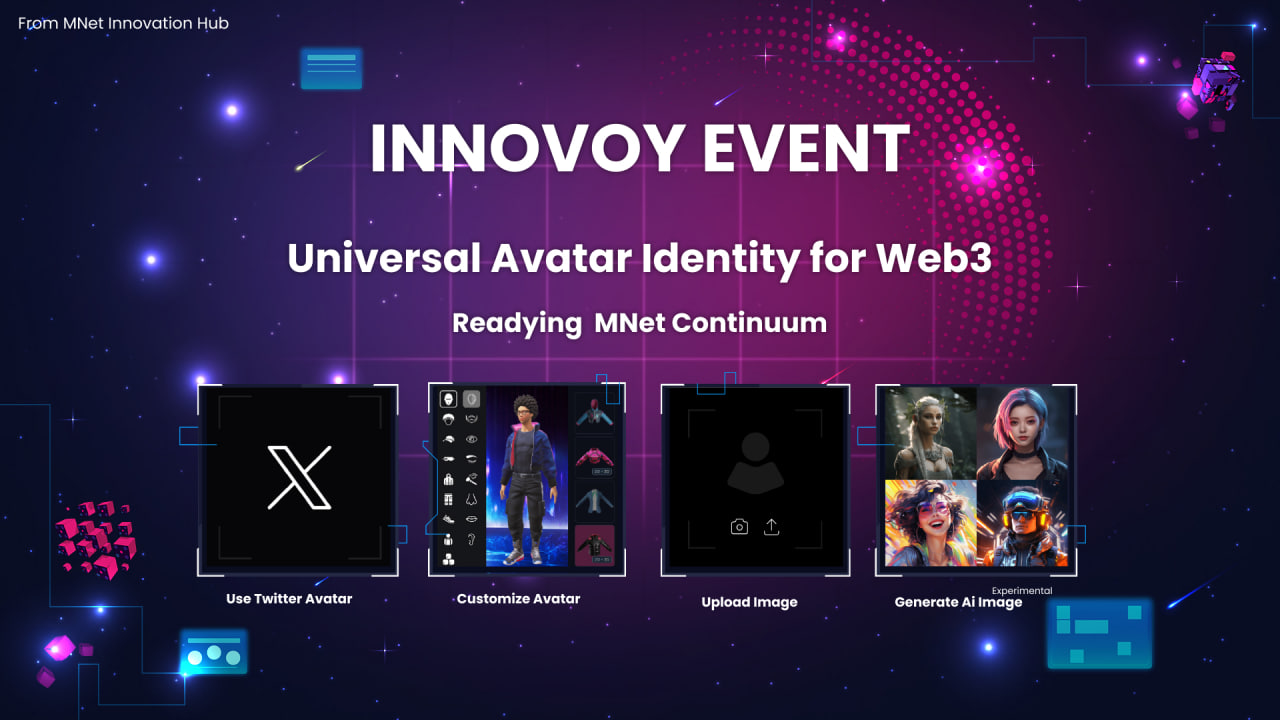Sometime back, my friend (who is not a techie) shared with me how she felt weird witnessing a computer judging her brother’s job application, not a real human.
As an unseasoned rookie developer, he applied for a new gig, and guess what? The employer had him playing these mind-numbing funky online games and when done the AI within started grading his personality. No human touch whatsoever. It made me wonder, is it okay for a computer to decide if someone is in or out?
Apparently, it is. AI’s are dropping like NFT frenzy on every station, whether you need it or not. Every solution got prefixed with AI in the AI-frenzy whirlpool that is going coast-to-coast. So, it was only a matter of time before recruiters jumped on the bandwagon and let AI call the shots on someone’s career. Welcome to the AI hiring world!
The pandemic made it a big deal and now it’s gotten so integrated into our lives, owing to its convenience and rapid outcomes, that someone thought AI should be left to spot, skim, and sort resumes. What would have been a human is now a soulless bot. But, this overuse has got us wondering if it’s all square and fair.

AI-recruitment – A closer look
AI is shaping the tech-talent landscape. AI-enabled HR automation integrates more efficiency into the nascent-stage recruitment protocols. Bryan Hancock told McKinsey, “Gen AI can dramatically improve speed and quality. You can include much more personalization about the candidate, the job, and what other jobs may be available. These things are made immensely easier and faster through Gen AI.”
According to Deloitte, “AI can shoulder much of the administrative burden around HR processes, reducing overhead. AI makes it possible to efficiently screen a far wider selection of candidates, increasing the likelihood of finding scarce and non-conventional talent.”
Glen Cathey, SVP -Talent Advisory at Randstad, demonstrates how he was able to create interview questions for specific roles, facilitate conversations with hiring managers, craft Boolean search strings, screen resumes, draft candidate outreach messages, and explore salary benchmarking data.
As per the Future of Recruiting 2023 report, 74% of hiring professionals say Gen-AI will automate repetitive tasks, 67% say it will make it faster/easier to source candidates, and 59% feel it will make it faster/easier to engage candidates.
Boston Consulting Group, in its “How Generative AI Will Transform HR” report, feels Gen-AI will act as co-pilots, increase self-service, develop career pathways, improve talent sourcing & strategies, expedite first-level support, elevate people development, simplify retention, create a personalized interface, and boost overall productivity by up to 30% across the HR value chain.
Then, there is the Pymetrics test, made up of computer games. Frida Polli, a cognitive scientist and CEO of Pymetrics, an audited AI tool that uses data-driven behavior insights, says, “The whole idea is that instead of using a resume, you are looking at people’s cognitive, social, and emotional aptitudes. It’s also much more future-facing and potential-oriented.” Similarly, there are Paradox, Fetcher, and many more AI-focused recruitment tools. Some candidates aren’t so happy though.
Paul Daugherty, Chief Technology and Innovation Officer at Accenture, writes in this Fortune piece, “Generative A.I., we will see a fundamental change in the way people will work and access information and generative A.I. will impact 40% of people’s working hours.” Similarly, Joe Burridge, Senior Recruiter at Electronic Arts (EA), believes, “AI removes the labor-intensive side at the very start of the hiring process and inherent human biases”
We’ve talked about the good stuff, but what about the downsides? On the employer side, AI has its drawbacks. The Forbes article points out how the overuse of AI creates an emotional gap, fuels bias, skips resumes that aren’t SEO-optimized, can’t gauge cultural fit, can’t cope without human input, and struggles to read soft skills and other nuanced details.
Could the overreliance on AI affect the employee size in the talent acquisition space? Kevin O’Neill, Technology Research Director, Staffing Industry Analysts, suggests that “despite increased investment in technology and use of AI, there is little evidence to suggest that staffing firms are reducing headcount. Of course, there’s no guarantee that this will remain the case in the future.”
However, it won’t be all smooth sailing. Expect to see some changes as industries adjust to the new AI wave. In an interview with Bloomberg, Chris Hyams, CEO of Indeed, talks about wanting to create “Cyborg” Recruiters Using AI. Chris says, “We have transferred about 50 recruitment people to a product we call Indeed Hire, which is a full-service agency that helps other companies hire. We’re using AI to make this role more efficient.”
If this wasn’t it, AI has also become a great asset on the candidate side. Off-late candidates have been seen cracking interviews while relying on an AI on screen. Final Round AI has come with a co-pilot to help candidates harness the power of AI to clear interviews. It provides on-the-fly transcription and contextual assistance during online interviews.
The candidates will most likely read and fire answers to the recruiter’s questions right off the screen data. Candidates that would have otherwise taken breaks and pauses as “Um,” “Uh,” “Er,” “Well,” “You know,” and other mid-sentence sounds/words to collect thoughts and form the next sequence of words, will now be rattling off answers in a jiffy – giving the impression of exceptional preparedness.
As Newschoolboosted and Evolving.ai point out in these videos, candidates who can’t think for themselves cheat through AI bots to nail an interview. Independent reported early this year how ChatGPT prompts were being used in the preliminary stages to come up with questions and corresponding answers relevant to the job description, besides tweaking resumes and crafting a custom cover letter.
Original Video by Evolving.AI on Instagram.
The future is AI and human – not human or AI only
Despite what AI brings to recruitment in its unparalleled ability to recognize complex behavior patterns and process vast amounts of data, some loopholes need to be fixed. In 2018, Amazon shut down its AI recruitment system. As Reuters reports, Amazon’s system taught itself that male candidates were preferable. It downgraded CVs containing the word women’s.
In 2021–22, the Promotion Review Committees (PRCs) overturned 4.46% of the promotion decisions reviewed. Why? Because the process used AI-assisted automated selection techniques, including psychometric testing, self-recorded video responses, and questionnaires. Unfortunately, this selection process didn’t always meet the key objective of selecting the most meritorious candidates.
At least, the World Economic Forum believes that with more AI tools, there is a sense of loss of human touch or empathy. Further, the use of AI poses legal, organizational, ethical, and reputational risks concerning privacy, bias, potential misuse, mistrust, security, and much more. Similarly, a facial-analysis tech created by Microsoft downgraded darker-skin subjects and more if you were a woman, showing an error rate of around 21% for darker-skinned women.
Truth to be told, AI isn’t going anywhere. In the post-AI world, employers can only learn to cope with this newfound power. The best way to do that is to learn to integrate it into your workstream. It can be turned into a strength, if you get it right. Just configure your AI correctly with the right regulatory controls and make sure it’s mapped to work with the human touch of a recruiter.
Let me tell about my experience, I am heading talent augmentation for years, believe that AI in recruitment is a valuable tool for handling large volumes of applications and automating routine processes. It enhances efficiency by quickly identifying potential candidates, reducing time-to-fill positions, and improving overall recruitment productivity. However, there is a certain significance of the human touch in building relationships, understanding nuanced candidate qualities, and making final hiring decisions.
We have been seeing candidates taking advantage of AI to cheat and surpass the selection process but AI in certain Assessment Platforms or ATS Software also allows the recruiters and hiring managers to identify the malpractices to avoid letting a wrong hire into their system.
On one hand, AI streamlines processes, making things quicker and more organized. On the other, there’s a concern about losing the personal touch in understanding candidates beyond what’s on paper. One may appreciate the efficiency but there is an emphasis on the value of human intuition, empathy, and connection in making the right hiring decisions that go beyond what algorithms can capture.
It’s about finding harmony between technology and the human aspect to ensure a holistic and thoughtful approach to recruitment. Striking the right balance between AI-driven efficiency and the expertise of human judgment is key to successful talent acquisition.
About the author Namita Sharma: Namita Sharma, Talent Recruitment Lead at BorderlessMind and loves to empower candidates with the right opportunities at BorderlessMind. She is passionate about building dream teams.

